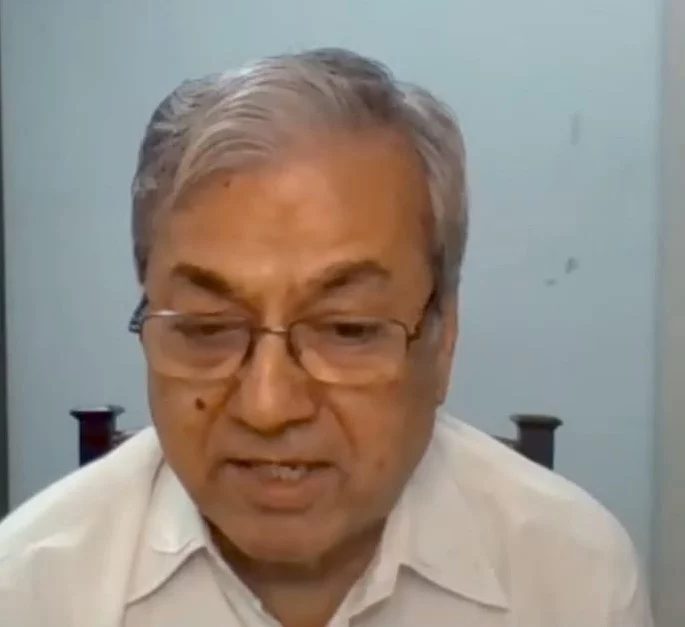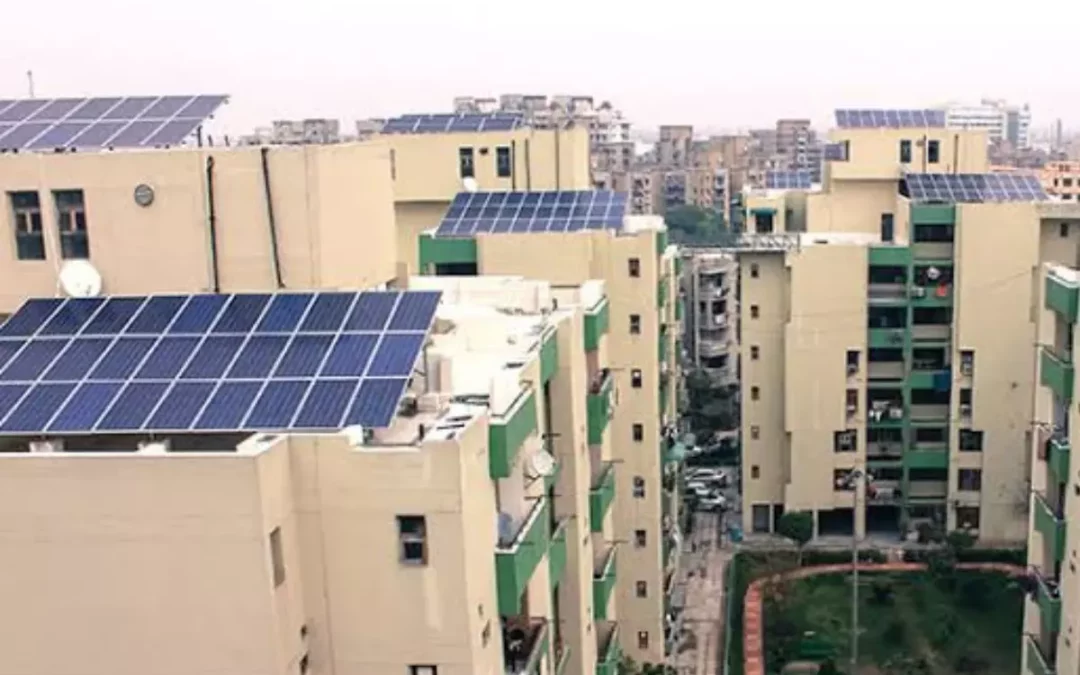Read in : தமிழ்
Solar power need has never been direr and its importance never more valuable. The Tamil Nadu Generation and Distribution Corporation Ltd. (TANGEDCO) has hiked the prices of electricity despite opposition. As per the new rate structure, domestic consumers will have to pay Rs 4.50 per unit up to 400 units for two months, as against Rs 3 per unit up to 500 units, and Rs 6.50 per unit from 401 to 500 units, and Rs 8 per unit for 501 to 600 units. Various slabs have been created and accordingly the tariffs increased.
Moreover, the common power supply for lighting and motor pump in small apartments and additional connections in individual apartments is brought under the new category LT-ID where each unit is charged Rs 8. So, it is obvious that consumers will have to pay through the nose for their consumption of power as it is officially said that every year the tariffs will go up, linked to the consumer price index.
In this situation, solar power generation has assumed significance. Compared to the situation about three years ago, nowadays a great interest has emerged in setting up rooftop solar power panels. Big corporates and certain large bodies are actively engaged in this enterprise. In fact, there is a possibility of generating solar power in such way that the excess power, after used for domestic consumption, can be handed over to the TANGEDO and some income earned (of course, there is a catch). Moreover, solar power can be tapped for reasons of environmental safety and domestic use.
But when it comes to popularizing solar among the public, there are still complications regarding subsidy, payback period etc. on this front. Also the people by and large have yet to be given a clear picture about it. If about Rs.60,000 is invested in generation of, say, 1,000 kilowatt of solar power, what will be returns? If a TNEB office is approached, they seem not to be knowledgeable about it and so only discouragement is expected. Then what can be done?
Questions like these are galore, raised by the laymen. They are, of course, really interested in installing rooftop solar power panels. But they do not know how and where to begin.
When it comes to popularizing solar among the public, there are still complications regarding subsidy, payback period etc. on this front. Also the people by and large have yet to be given a clear picture about it
All questions and doubts about solar power were cleared by ‘Solar Suresh’ who shared his viewpoints and experiences with inmathi.com. He is an IIT-ian by education, an engineer by profession and now a green enthusiast by passion. He has also worked in various corporates and hosted leadership programmes. He has proved that solar power need not involve big corporates alone and even individuals can go about it. As an individual he has done it.
He has personally earned experiences of helping several people install solar panels at their residences. He has aired his opinions in public domain not only on solar power but also on environment.
Regarding certain hassles and pragmatic issues in generating solar power for domestic use which will help the consumers reduce electricity bills, Solar Suresh said categorically that hassles are only in the mind, not in the technology. Generally in apartment complexes, there are always a few people who go all out to stop innovations. “From September 10, power tariffs have increased. You said there was a hike of Rs.8 per unit in power tariffs. Nay, it is Rs.10 and even more. In the common areas, there is a commercial tariff of Rs.10. In the past, the commercial tariff was just Rs.6.50. Now various slabs have been introduced. If you take into account various charges, the commercial power tariff will go up to Rs.10 or Rs. 12,” he said, stressing the value of solar power.
Also Read: Power tariff hike should spur decentralised rooftop solar power in Tamil Nadu
Regarding subsidy for solar, he said there was no subsidy for common areas or apartment complexes. Subsidy is there, of course, but for residential houses only, he remarked. Yet, subsidy or no subsidy, solar power must be tapped, he said.
“You buy TV, car, houses etc. not for subsidy, but for your own use. Likewise, don’t bother about subsidy. You just go ahead with rooftop solar installation for your convenience. I am not talking about environmental benefits of the solar, only about your comfort. It is already announced that in July every year there will be a six per cent hike in power tariffs. So the hike will not affect you if have solar panels in place at your residence,” said the proponent of solar power.
Listing the practical benefits of solar power, Suresh said that to begin with, solar power will help you save up on your regular electricity bills. That is the first benefit. Secondly is the fact that wiring is not needed for solar power panel. “You just connect the panel to the main,” he said. Thirdly, everyday maintenance of the solar installation is not needed; just once or twice a month it can be done. Even if for two months it is not done, the installation will not get bad. Fourth point is that solar power is also beneficial to the country as the best renewable energy option. The use of coal, fossilized fuel and petroleum products will decrease with the increasing use of solar power and that will help the government save up on foreign exchange.
Regarding the payback period, Suresh said it need not be calculated, for spending on solar is not an investment. “Do you think it is an investment when you buy cars, TV or AC machines?” he said. In fact, if seriously calculated, the money spent on installing solar power can be recovered within three years. The returns you get in this regard are tax-free, he added.
Of course, there is a cost for solar power too. But it’s not expensive.
There are two kinds of solar power system: one is with battery back-up called off-grid and another is without battery back-up called on-grid. Solar installation without battery back-up (on-grid) will be active as long as sun shines. In the evening power will be accessed from the grid. It is automatic; you need not switch on. It is not at all costly. If an apartment complex wants solar installation, the amount needed for it depends on the usual power consumption level of the complex. It will cost Rs.60,000 to set up solar installation without battery back-up. One kilowatt of solar power can produce four units of power. If an apartment is in need of 40 units of power, then the solar installation has to produce 10 kilowatt of power to cater to its needs. The total amount needed will be around Rs. five lakhs for the solar system with battery back-up.

Solar Suresh- solar power expert
The major benefit of a solar system installed without battery back-up at residences, the users can divert the excess power to the government and cash in on it. But the amount due to the users will be adjusted in their usual billing. But the catch is that since solar power is generated using the government network, charges will be deducted from the sale price of the excess solar power. So, Suresh advocates non-use of net metering.
Since the apartment complexes under the commercial common area category, this is not applicable to them, Suresh said.
The drawback that he has pointed out is that if there is power cut, the on-grid solar system, that is, system without battery back-up, will not produce power even if there is a lot of sunshine.
There are two kinds of solar power system: one is with battery back-up called off-grid and another is without battery back-up called on-grid. Solar installation without battery back-up (on-grid) will be active as long as sun shines. In the evening power will be accessed from the grid. It is automatic; you need not switch on. It is not at all costly
Part 1:
Part 2:
Asked about how the common people should be motivated to go for solar power, Suresh narrated his own experience that aroused a curiosity among his neighbors when storm and heavy rains hit Chennai a few years ago and there was a resultant outage for five days in row. When almost all of his neighbours had suffered a lot, left in the dark literally, they enviously stared at his house that looked like an odd man out in the vicinity, totally bright thanks to the solar system he had installed. He claimed he was the first in Chennai to install the on-grid solar system at his residence.
As rains normally begin in the evening, the daytime will help the on-grid solar system produce power and store it in the grid. That was the reason why his house alone had power supply during the dark days.
Some common people, he said, are expecting the government to take an initiative on the solar front. But the government seems not so interested in this matter, he said, adding that two former chairmen of TNEB and two top IAS officers had visited him to have first-hand knowledge of the solar system he had preached and practiced. But though they had official power to take forward this solar venture and propagate it, by the time they began making efforts, they were transferred. Several people had personally called on him to get enlightened on this count.
Suresh had helped innumerable apartments commission the solar system in their complexes. So, as former US President John F. Kennedy said, “Do it yourself. Do not expect the government to take the initiative,” he insisted.
Also Read: Why Tangedco needs to pay us for damaging our fridges, TVs, A/Cs
Asked how to select genuine and real vendors for buying the solar system, Suresh advised, “You can simply google them in Chennai and out of the listed vendors, you select the best ones after verifying their credentials in this field.”
Regarding some vendors who have no quality of trade and no qualms about taking people for a ride, he recalled how a school had faced such a problem after a vendor vanished after doing the work haphazardly and how he was summoned to fix it.
For his opinion that solar power would, in the long run, will help us save up on the power consumption, he cited an example. An apartment complex in Manappakam had installed solar system and after a few years, the residents who used to pay around Rs. two lakhs collectively for power tariff saw their bill reduced by half. In fact, after a few years your solar system will pay for itself, he firmly said.
(Those keen to know more about solar power can speak to Solar Suresh at this number 9381205869)
Read in : தமிழ்











